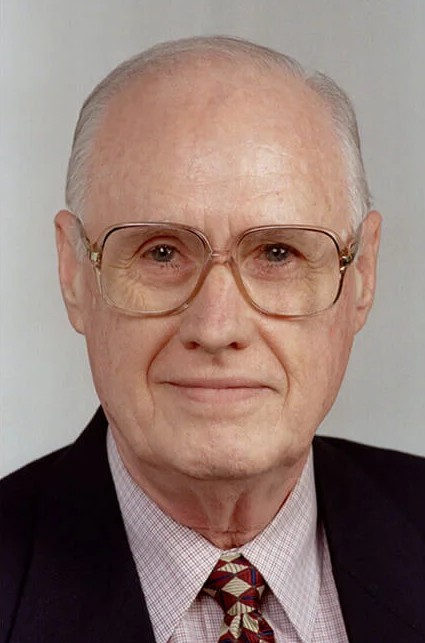Carlton Minnick, influential UMC bishop, dies at 96

Carlton "C.P." Minnick. (Photo by Mike DuBose, United Methodist News Service)
Carlton “C.P.” Minnick, a former president of the United Methodist council of bishops, died May 4. He was 96.
Minnick led UMC conferences in Mississippi and North Carolina, and he became known for championing women in ministry and helping lead the council of bishops to speak out against US nuclear weapons policy.
“His leadership style was marked with openness and grace,” said Belton Joyner, Minnick’s assistant in the North Carolina Conference. “It was clear what he felt but he had room in his heart for relationships with those with whom he did not agree.”
After being ordained a deacon and elder, Minnick served five full-time pastoral appointments in the Virginia Conference. In 1980, Minnick was elected a bishop at the Southeastern Jurisdictional Conference, and assigned to the Jackson, Mississippi, episcopal area.
Minnick had not put his name forward to be a bishop.
“If the church, in her collective wisdom, feels this is where I ought to serve, then I’m willing and excited about doing so,” he told the Jackson Clarion-Ledger soon after beginning his episcopal career.
In Jackson, he won the respect and affection of a young clergy couple, Joe and Betty Reiff. Betty was the second woman ordained in the Mississippi Conference and the first ordained woman to lead a church in the conference—and she recalls Minnick’s strong backing.
“Betty and I loved and looked up to Bishop Minnick,” said Joe Reiff. “He was a plain-spoken preacher and speaker whose manner and approach let his listeners know he cared for them all. He was especially good as a Bible teacher because of his ability to communicate clearly some complex truths about the Bible in a way that laity and clergy alike could understand.”
Mary John Dye felt Minnick’s support as she went through a frustrating but ultimately successful effort to become a North Mississippi Conference elder. Minnick also appointed her, a White woman, to serve a Black church in Indianola, Mississippi—something she and the church both wanted.
It was the denomination’s first cross-cultural local church appointment in all of Mississippi and Dye said Minnick stood by her as she faced hostility from some in the community.
After four years in Mississippi, Minnick was assigned to lead the Raleigh-based North Carolina Conference. Among his admirers there was a future bishop, Hope Morgan Ward. She recalls how at one clergy event she and her few female colleagues took their barbecue to a corner table, feeling the need for solidarity in an overwhelmingly male setting.
But the gender line was quickly broken.
“Bishop Minnick came to eat with us,” she said.
Minnick got pushback for championing women clergy in the North Carolina Conference but didn’t flinch.
“When God stops calling them,” he was known to say, “I’ll stop appointing them.”
In 1985, Minnick traveled to Nicaragua with two other UMC bishops. The delegation successfully proposed that the council of bishops issue a statement critical of the Reagan administration’s support for the Contras seeking to overturn the Sandinista government.
In the mid-1980s, Minnick co-led an effort that produced the council of bishops’ pastoral letter titled In Defense of Creation: The Nuclear Crisis and a Just Peace.
“We conclude that nuclear deterrence is a position which cannot receive the church’s blessing,” the letter said.
Later in his North Carolina Conference years, Minnick served a term as president of the Council of Bishops. He also was president of the United Methodist Committee on Relief.
After retiring from the active episcopacy in 1996, Minnick became bishop-in-residence at Duke Divinity School, a position he held for a decade. In 2000, he had a key role in the decision that Duke Chapel would be open to same-sex weddings. —United Methodist News Service





